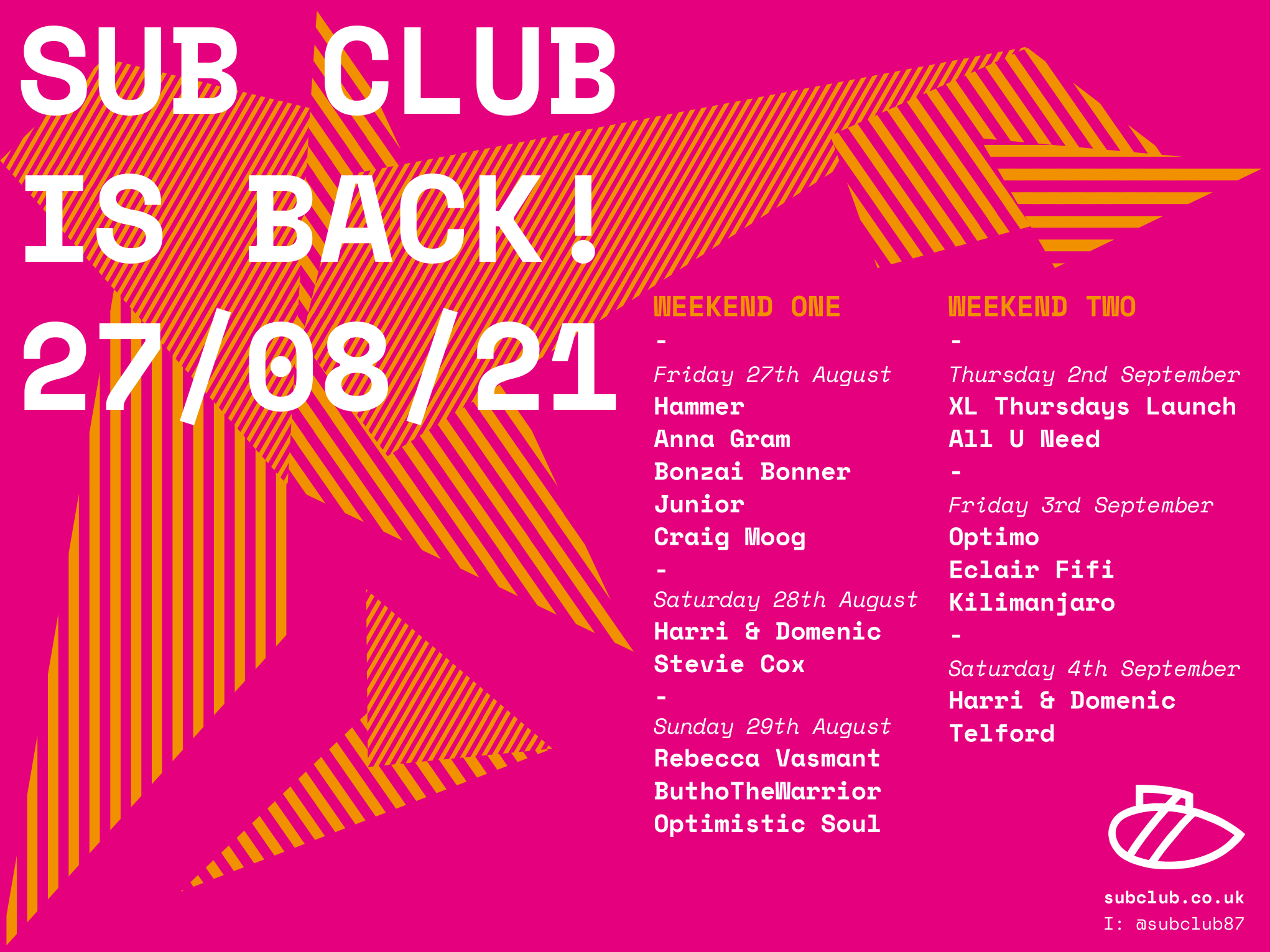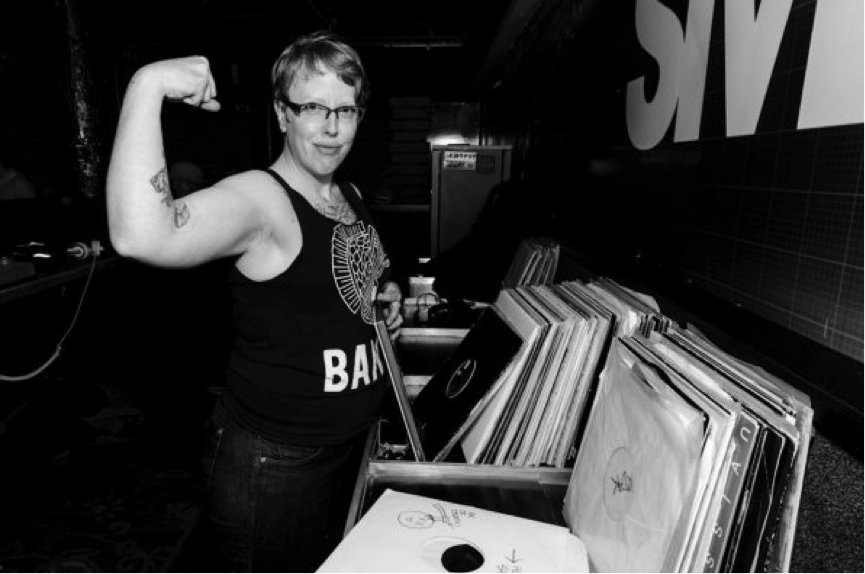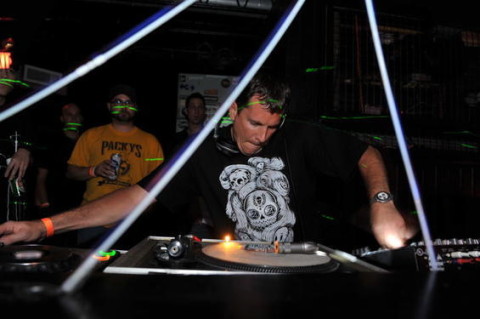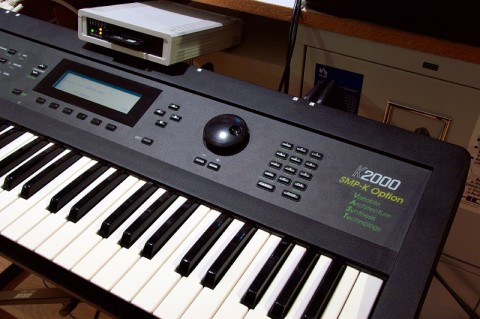The Black Madonna says she is living the dream. With killer mixes on Beats In Space, LWE, Dekmantel and Honey Soundsystem going hand in hand with her own productions on The Nite Owl, Argot and Stripped & Chewed, it’s easy to see why Marea Stamper is in such high demand across the globe right now. She also happens to be one of the most modest and thoughtful DJs currently on the go, while as boss of Chicago’s Smart Bar she is becoming one of the most influential figures in America.
Bigfoot’s caught this interview with her ahead of her first show in Scotland, which is this Friday at the Sub Club…
This is your first time in Scotland, right? So let’s pretend we’ve just met for the first time – who are you and where do you come from?
I am Marea and I am from a small town in Kentucky in an area with a lot of coal mining called Jackson. I then went on to grow up in Lexington and Louisville, Kentucky. I love UK basketball and dancing
…
Where are you now?
Chicago!
What made you decide on “The Black Madonna”?
She’s a figure that my mother was very close to. The name isn’t so much a name as it is a dedication to this version of Mary and of course it’s as Pedro Almodovar said, “All About My Mother.”
We saw you play your first gig at Panorama Bar and the place was going wild, (even more so than usual), tell us a little about how the last 12 months have been for you?
I keep thinking I am going to wake up and have to give this new life back. When I got that gig, I didn’t even have a passport. But this is the new normal. I love packing and traveling and meeting new people. I get homesick too, but it makes coming home to my husband and dog even sweeter.
You are often described as a “rave girl”, having been out partying as young as 14. What is a Kentucky rave like for a 14 year old? What is a Kentucky rave like for a 28 year old?
Believe it or not, Kentucky was an absolutely essential piece of the North American rave scene. I was lucky enough to be a small piece of that. Largely my safety and sanity is due to a man named JJ who was a kind of rave parent to me, I guess you’d say. By the time I was 28, raves had changed dramatically and for the worse in Kentucky and most of the rest of America. It’s sad. It was shining moment in time. We were young and crazy, but I think the scene also had a lot of bsionaries. Lots of those people are still around in techno. Our lives are different but that spirit is still there. I remember taking flyers from our rave in KY to Jason Clark who now does Paxahau in 1994. A lot of us turned raving into a job.
Are there any DJs in particular that you looked up to around that time?
Terry Mullan, Jajo, Hyperactive, Traxx. Those were my absolute favourites.
Where did you go to college? A lot of people involved in music say they look back on their college years as the time that shaped them more as a person, rather than put them on a ladder to a job or career – is this true for you? Were you involved in music during your college years?
If it wasn’t for college and an empty, barely legal student radio station in the student activities centre, I wouldn’t have made the leap to DJing. I had the keys and I locked myself in there. When I started school, I thought I would be a lawyer. By the time I was done, I knew that was not going to happen. Too far gone, no way back. I moved to Chicago shortly after graduation and lived in the converted tool closet of the owner of Dust Traxx. My room was about as big as my bed is now. So that’s where college got me. It was perfect actually.
When did you start to become fascinated with Chicago? Were you always drawn to move there one day? What did you do when you first arrived in Chi town?
If you love house music, Chicago enters through your imagination before you visit. It’s more or less like I imagined, but maybe colder. I never thought I would live here though. I never thought I would leave Kentucky and in many ways I resisted it. I remember thinking, “Chicago is cool to visit but I could never live there. Everyone is in a hurry and it’s expensive.” I was so afraid of the idea, but I have learned since that time that usually being terrified and yet fascinated by the idea of doing something means I should do it as soon as possible.
When did you start making music and what was your first ever studio set up like? How has it developed over the years?
I’ve always had a garbage studio basically put together from stuff people gave me or left at my house. It’s still that way. I think if people saw what I worked with, they’d be very surprised. I find myself often disappointing people who want to talk shop with me about gear, because I have virtually nothing and I don’t really want a lot. I work with Logic and a lot of plug ins. I have a Kurzweil k2000 that doesn’t work right and I use it as a midi controller. I have an old M-audio soundcard and a mini Mac. My monitors are shit. My amp has a terrible buzzing sound. I haven’t been able to pay my bills until about 6 months ago, so this is what I have. Maybe if they let me keep touring, I will buy some real shit.
I read an interview with Gilles Peterson and Motor City Drum Ensemble recently where they said they felt music had lost it’s political edge – that no one on the dance floor seems to want to engage in issues surrounding them. Would you agree?
I would, but I would add that this seems to be changing as we speak. I’m starting to be contacted by other DJs who are activists or who have strong ideas that they don’t want to be quiet about anymore. That goes double for women. I think people are becoming aware that we’re all capable of having a party without checking out of earth completely. Thinking and trying to be of some use to other people or standing up for our own rights and safety doesn’t mean we can’t lose ourselves on the dance floor.
You are well known for bringing a straight up party vibe to the dance floor, but also as a person who holds strong and thoughtful personal views – what is the relationship between your music and your life outside of the clubs?
Parties come from struggle. Look at the historical origins of house and disco. It’s not 40 year old white guys with 401ks. Dance music comes from oppressed people. The dance floor is a place to bring your trouble and do something with it. As far as having strong personal beliefs, I guess maybe I think of those more as just empathy that has been thought out. I care about other people. It seems like that should be the baseline requirement to work in dance music. I want to hear their stories and I want to help because I am able to. What that ends up looking like is a set of strongly held beliefs, but the same thing that makes me want to create unity on the dance floor though music at work. I reject this notion that caring about ideas somehow diminishes the vibe. The very existence of a disco in the early 80’s was a political act. It can be again!
What was your route into the Smart Bar?
First I was the assistant to Nate Seider and then I became the buyer when he left. I was also a resident first.
Outside of the Smart Bar – how would you describe the current state of play in Chicago, both musically and socially?
Fighting the good fight.
Lot’s of people look up to you at the moment, how does that feel?
It’s unimaginably strange to even read that sentence. I got a lot of letters from strangers all of a sudden. People send stuff to Smart Bar or hit me up on Facebook. They tell me their stories and often it’s really personal stuff. It’s a surreal and incredibly sweet thing. For what it is worth, it has meant so much to me to be a part of your lives over the last year of touring. I am extremely grateful to know you all.
The Black Madonna – Stay (Nite Owl Diner 2014)
The Black Madonna – Exodus (Stripped & Chewed 2014)
This podcast from an outstanding set at Dekmantel should get you in the mood for Friday…




